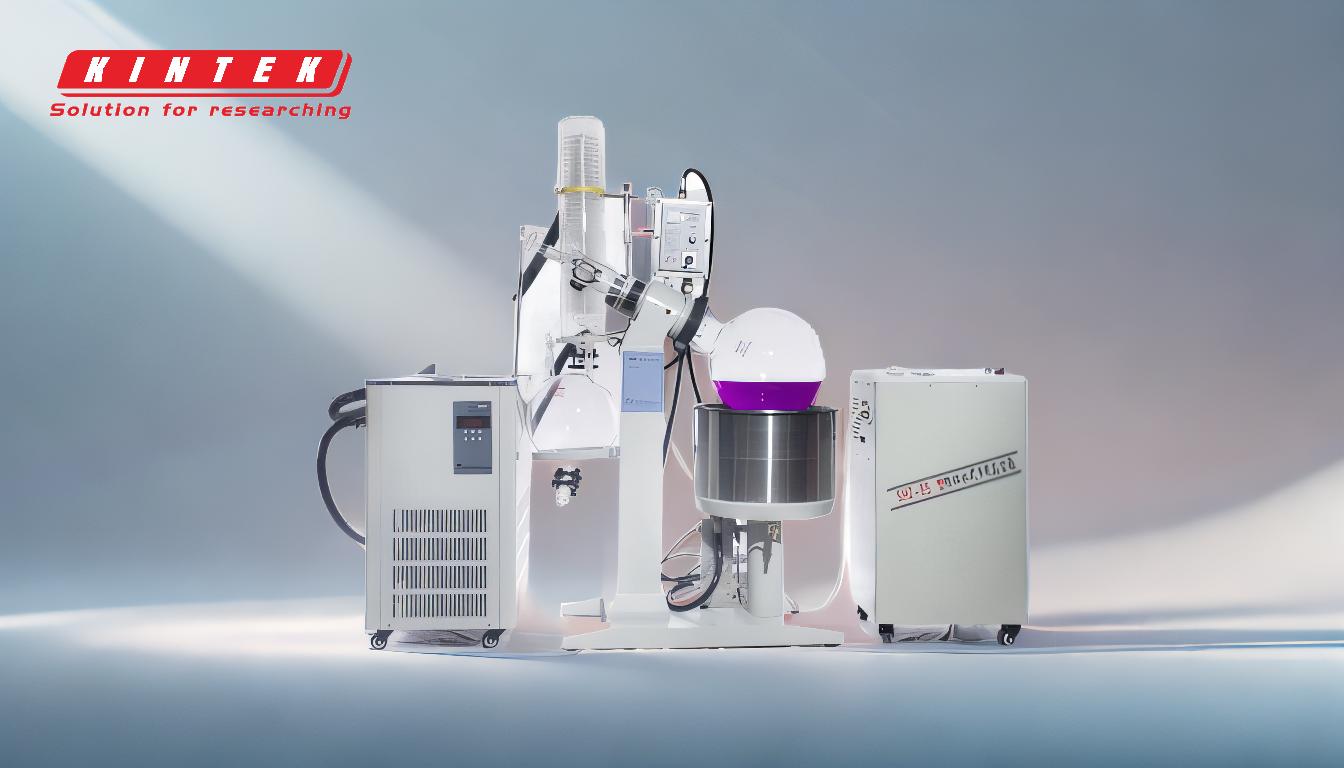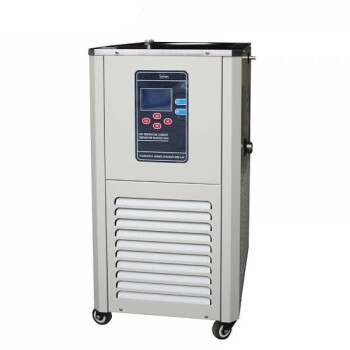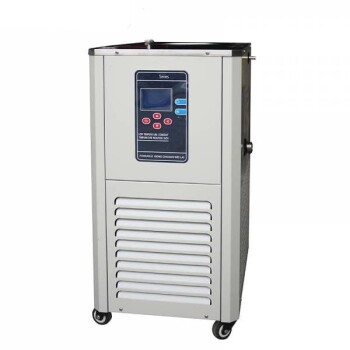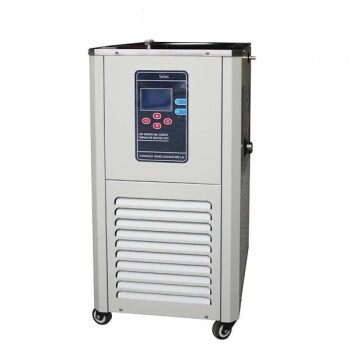The chiller plays a critical role in the operation of a rotary evaporator by providing precise and stable cooling to ensure efficient solvent vaporization. During the evaporation process, solvents become warm, and cooling is essential to maintain the required temperature for proper vaporization. The chiller achieves this by pumping a cool fluid, such as water or a water/glycol mixture, to the condenser to remove heat. The warm fluid then returns to the chiller, where it is cooled again, creating a continuous cycle. This process ensures the rotary evaporator operates efficiently, maintaining the necessary temperature for optimal performance.
Key Points Explained:

-
Cooling for Efficient Vaporization:
- During evaporation, solvents in the rotary evaporator absorb heat and become warm. Without proper cooling, the vaporization process would be inefficient or incomplete.
- The chiller ensures that the condenser remains at a precise and stable temperature, allowing the solvent vapors to condense back into liquid form effectively.
-
Heat Removal Mechanism:
- The chiller pumps a cool fluid (typically water or a water/glycol mixture) to the condenser of the rotary evaporator.
- This cool fluid absorbs heat from the solvent vapors, causing them to condense. The warm fluid then returns to the chiller, where it is cooled again, creating a continuous cycle.
-
Precise Temperature Control:
- A key advantage of using a chiller is its ability to maintain precise and stable temperatures. This is crucial for processes that require specific temperature ranges to avoid degradation of sensitive compounds or ensure consistent results.
- The chiller's temperature control ensures that the rotary evaporator operates within the desired parameters, enhancing both efficiency and reliability.
-
Fluid Types and Their Roles:
- The chiller typically uses water or a water/glycol mixture as the cooling fluid. Water is effective for moderate cooling needs, while the water/glycol mixture is used for lower temperatures or when freeze protection is required.
- The choice of fluid depends on the specific requirements of the rotary evaporator setup and the solvents being processed.
-
Integration with Rotary Evaporator:
- The chiller is an integral part of the rotary evaporator system, working in tandem with the condenser to ensure efficient heat removal.
- Proper integration ensures that the chiller and rotary evaporator function as a cohesive unit, optimizing the overall evaporation process.
-
Importance for Sensitive Applications:
- In applications involving heat-sensitive compounds or volatile solvents, precise cooling is critical to prevent degradation or loss of material.
- The chiller's ability to provide consistent cooling makes it indispensable for such applications, ensuring high-quality results.
-
Energy Efficiency and Operational Stability:
- By maintaining stable temperatures and recycling the cooling fluid, the chiller contributes to energy efficiency and reduces operational costs.
- Its role in maintaining operational stability ensures that the rotary evaporator performs consistently over extended periods.
In summary, the chiller is a vital component of a rotary evaporator setup, ensuring efficient solvent vaporization through precise cooling and heat removal. Its ability to maintain stable temperatures and integrate seamlessly with the condenser makes it essential for achieving optimal performance in various applications.
Summary Table:
| Key Aspect | Description |
|---|---|
| Cooling for Vaporization | Ensures precise and stable cooling for efficient solvent condensation. |
| Heat Removal Mechanism | Uses cool fluid (water/glycol) to absorb heat and recycle it for continuous use. |
| Temperature Control | Maintains precise temperatures to prevent degradation and ensure consistency. |
| Fluid Types | Water for moderate cooling; water/glycol for lower temperatures or freeze protection. |
| Integration | Works seamlessly with the condenser to optimize the evaporation process. |
| Sensitive Applications | Critical for heat-sensitive or volatile solvents to prevent material loss. |
| Energy Efficiency | Reduces operational costs by maintaining stable temperatures and recycling fluid. |
Optimize your rotary evaporator setup with a reliable chiller—contact our experts today for personalized solutions!










